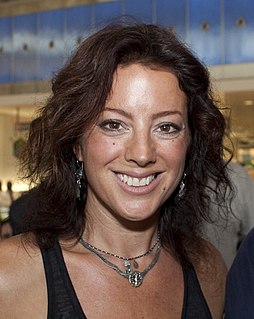A Quote by Dee Rees
I want people to get from 'Pariah' that it's okay to be you and not to check a box as a parent or child.
Related Quotes
A conscious parent is not one who seeks to fix her child or seek to produce or create the 'perfect' child. This is not about perfection. The conscious parent understands that is journey has been undertaken, this child has been called forth to 'raise the parent' itself. To show the parent where the parent has yet to grow. This is why we call our children into our lives.
For the rest of your life you must check the box on employment applications asking the dreaded question: "Have you ever been convicted of a felony?" And once you check that box, the odds are sky high that your application is going straight to the trash. Hundreds of professional licenses are off-limits to people convicted of felonies.
With demands for special education or standardized test prep being shouted in their ears, public schools can't always hear a parent when he says: 'I want my child to be able to write contracts in Spanish,' or, 'I want my child to shake hands firmly,' or, 'I want my child to study statistics and accounting, not calculus.
With demands for special education or standardized test prep being shouted in their ears, public schools can't always hear a parent when he says: 'I want my child to be able to write contracts in Spanish,' or, 'I want my child to shake hands firmly,' or, 'I want my child to study statistics and accounting, not calculus.'
Without a sense of the shame or guilt of his or her action, the child will only be hardened in rebellion by physical punishment. Shame (and praise) help the child to internalize the parent's judgment. It impresses upon the child that the parent is not only more powerful but also right. Like the Puritans, Locke (in 1690), wanted the child to adopt the parent's moral position, rather than simply bow to superior strength or social pressure.
The traditional paradigm of parenting has been very hierarchical, the parent knows best and very top down. Conscious parenting topples [this paradigm] on its head and creates this mutuality, this circularity where both parent and child serve each other and where in fact, perhaps, the child could be even more of a guru for the parent .... teaching the parent how the parent needs to grow, teaching the parent how to enter the present moment like only children know how to do.




































